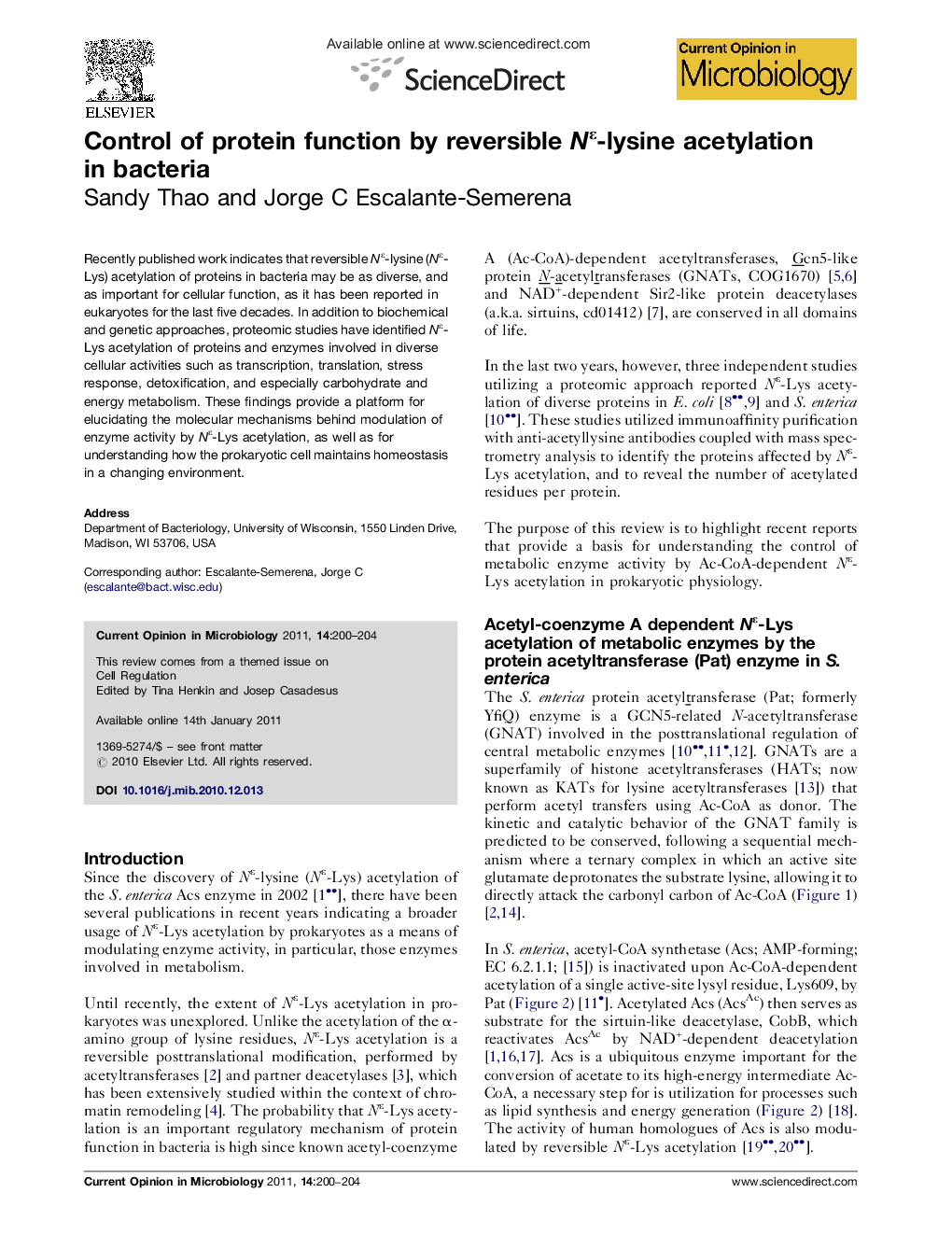| Article ID | Journal | Published Year | Pages | File Type |
|---|---|---|---|---|
| 3399309 | Current Opinion in Microbiology | 2011 | 5 Pages |
Recently published work indicates that reversible Nɛ-lysine (Nɛ-Lys) acetylation of proteins in bacteria may be as diverse, and as important for cellular function, as it has been reported in eukaryotes for the last five decades. In addition to biochemical and genetic approaches, proteomic studies have identified Nɛ-Lys acetylation of proteins and enzymes involved in diverse cellular activities such as transcription, translation, stress response, detoxification, and especially carbohydrate and energy metabolism. These findings provide a platform for elucidating the molecular mechanisms behind modulation of enzyme activity by Nɛ-Lys acetylation, as well as for understanding how the prokaryotic cell maintains homeostasis in a changing environment.
